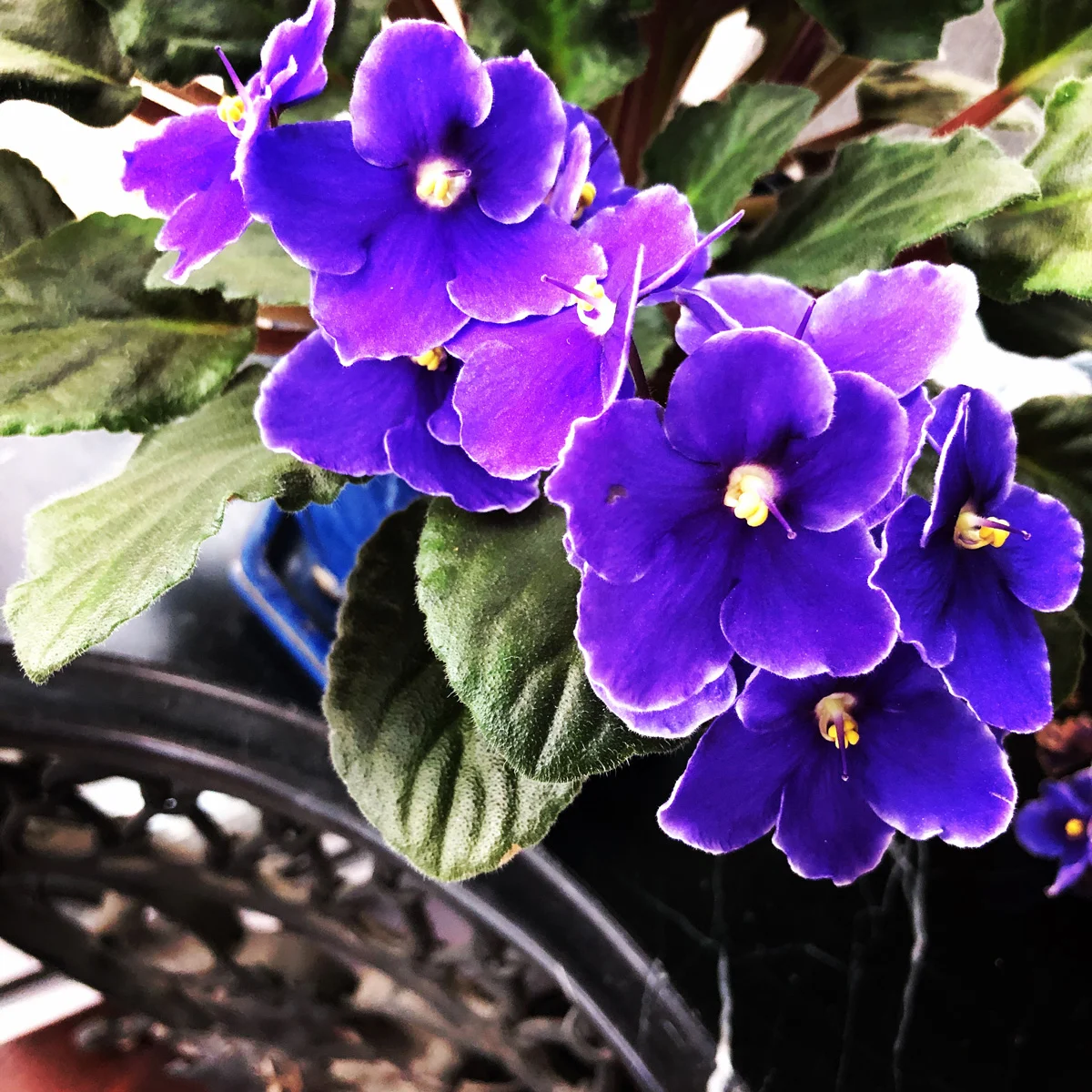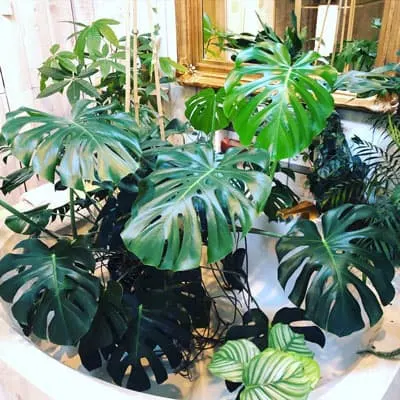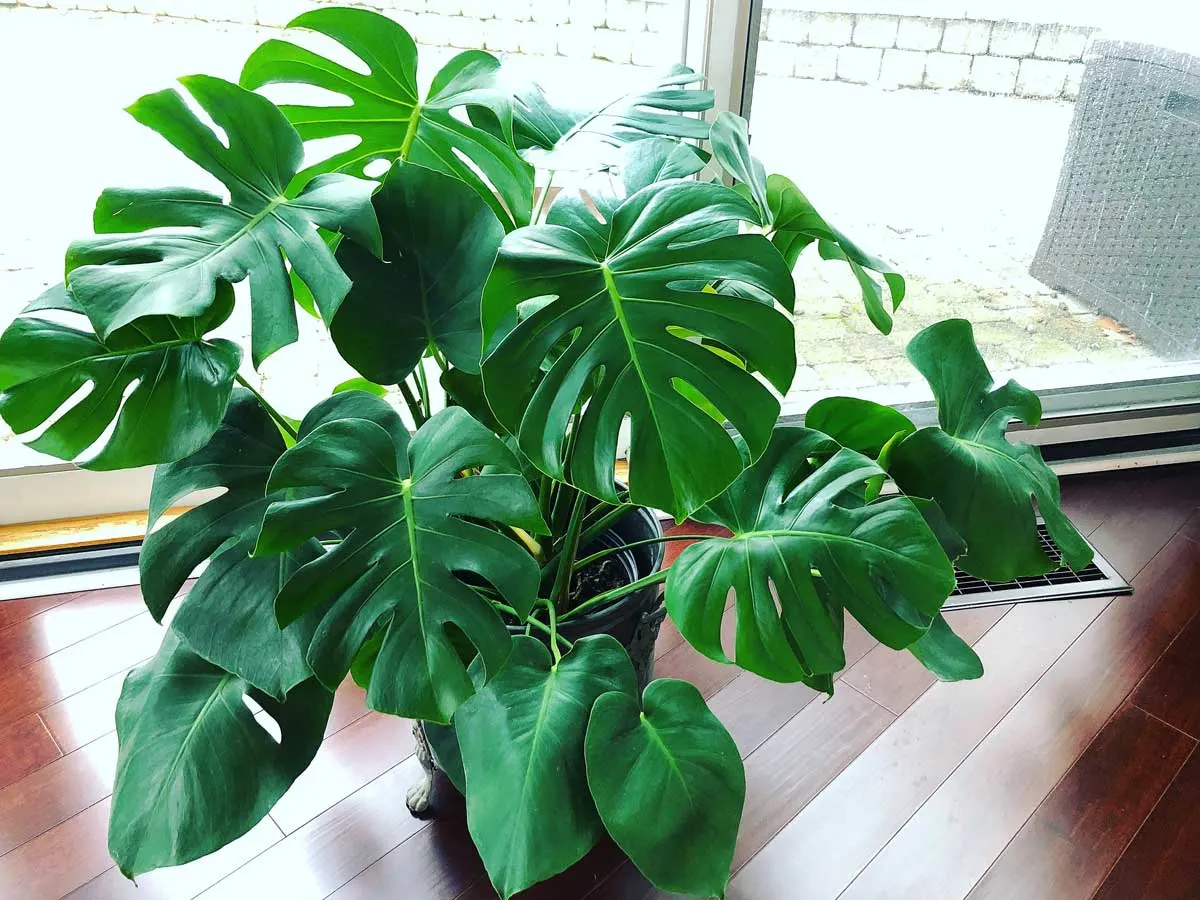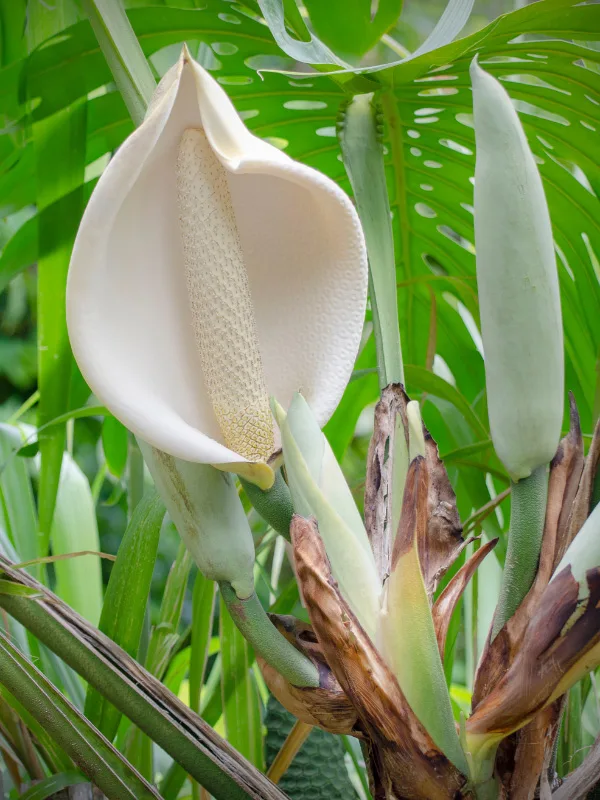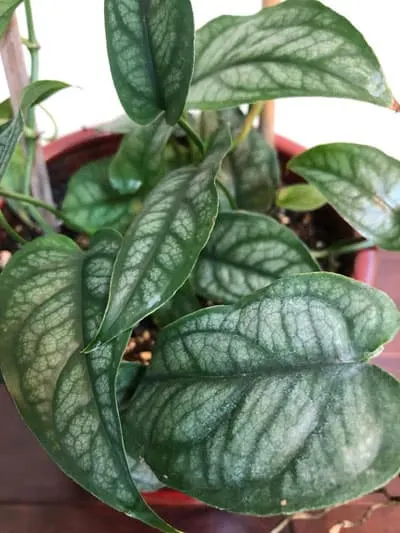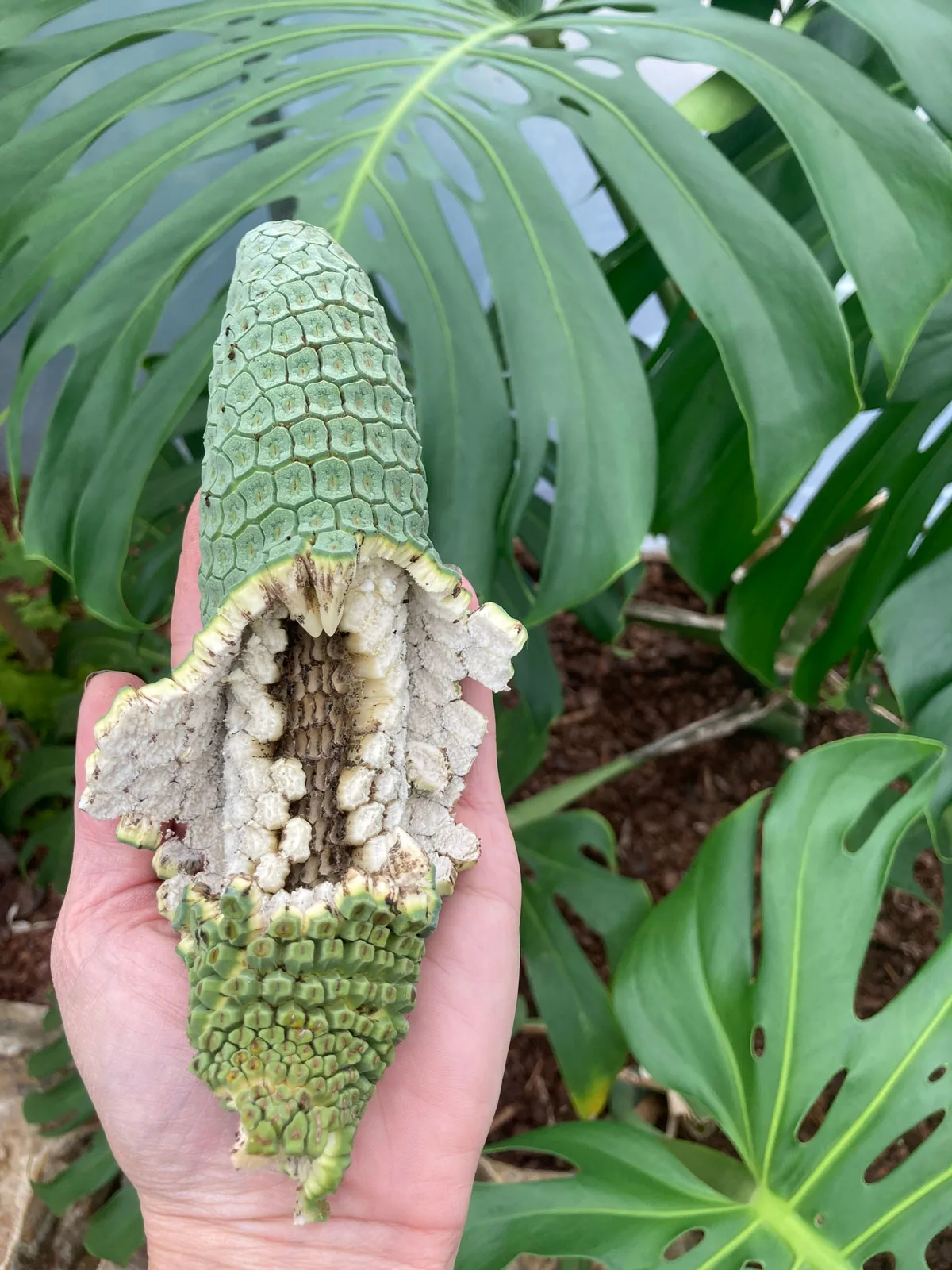Some of the links in this post may be affiliate links.
Are Monsteras toxic to cats and dogs? Keep reading this short post to find out the simple answer, and also to discover things that you may not have known so that you can keep your pet safe!
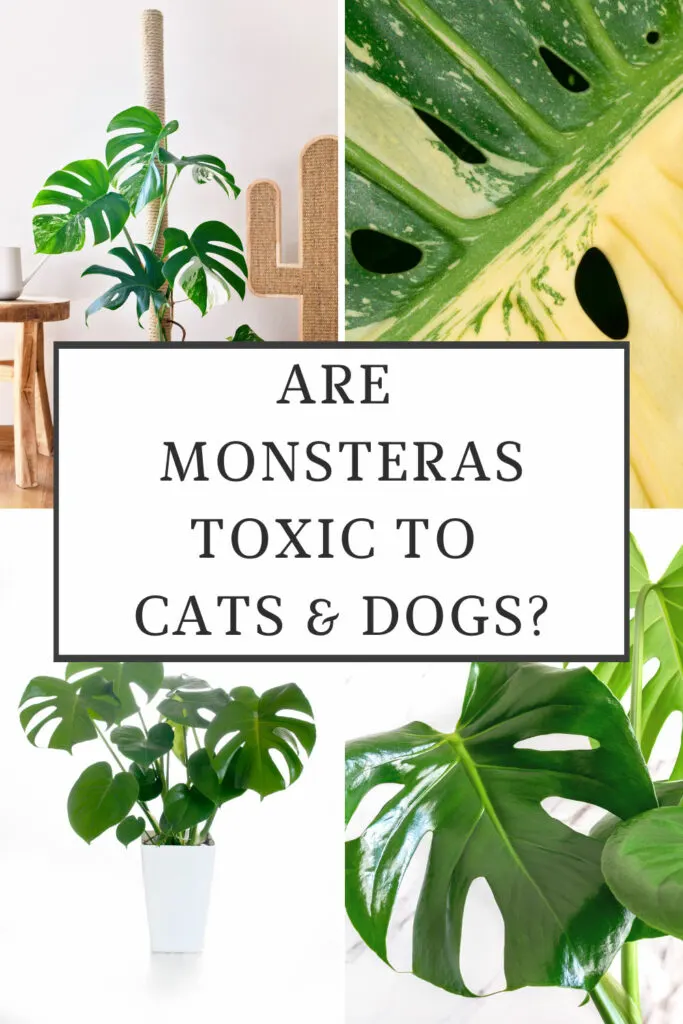
When most people hear “Monstera”, they often have Monstera deliciosa in mind, but the toxicity information applies to all types of Monstera including Monstera adansonii, Monstera obliqua, and other Monstera species.
The short answer is that Monstera plants are toxic to both cats and dogs, according to the American Society for the Prevention of Cruelty to Animals. But what does that exactly mean?
All pet owners that have plants need to read through the information below to keep their feline friends dogs safe.
Table of Contents
ARE MONSTERAS TOXIC TO CATS AND DOGS?
Here are 3 things that you need to know in case your cat or dog nibbles on any part of a Monstera plant.
1. PESTICIDES
Before I get into your cat or dog ingesting the plant itself, this is worth noting.
First off, when we take a plant home, we have no idea what your Monstera plant has been treated with in order to keep them bug-free and suitable for sale at your local nursery.
We will never know for sure, but there are numerous insecticides, fungicides, systemics, and more that can potentially have been used on your plants.
2. SYMPTOMS OF INGESTION
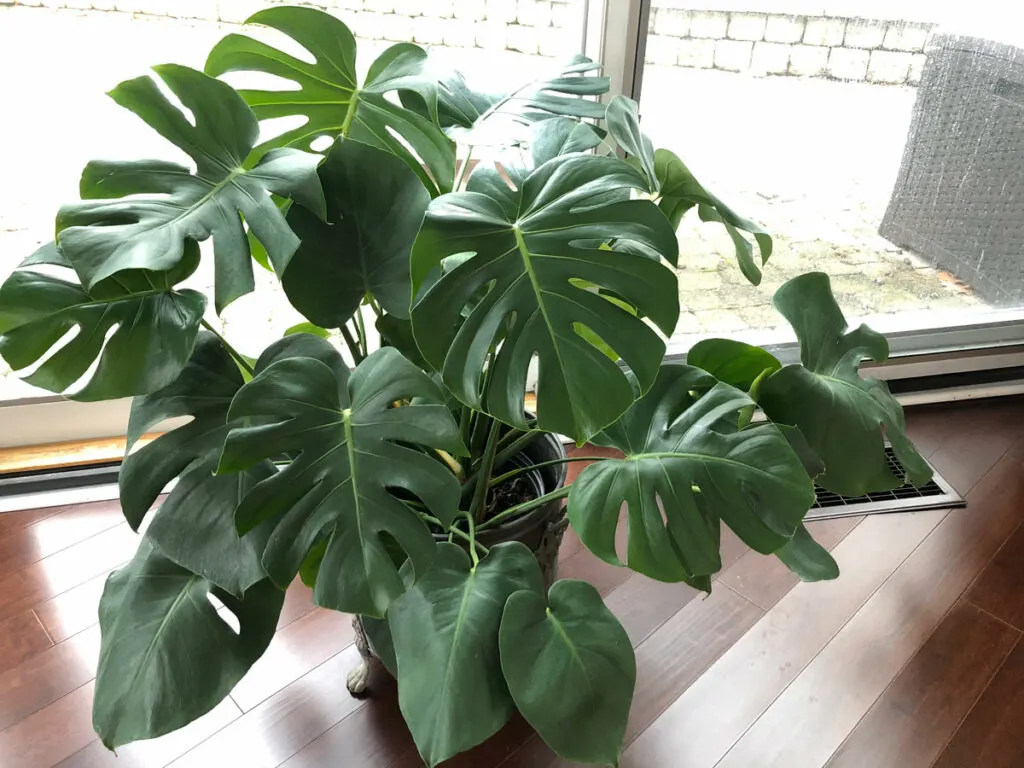
Although Monstera plants are considered toxic, they are not lethal. There are far more toxic plants that are often grown indoors.
In fact, if your kittie or dog nibble on your Monstera, they will experience some discomfort, but the good news is that they will probably end up staying away from your plant after that.
If your pets have eaten any part of the Monstera plant, they may experience one or more of the following symptoms:
- Oral irritation including stinging sensation and burning in the mouth.
- Excessive drooling
- Vomiting
- Difficulty swallowing
Swelling in the mouth can occur and then cause difficulty breathing, but this is fairly rare.
All parts of the Monstera plant are considered toxic, except for its ripe fruit. And ripe Monstera deliciosa fruit is delicious!
As a result of insoluble calcium oxalate crystals, any member of the Araceae family (aroid plant family), is considered mildly toxic. In fact, all popular houseplants in the aroid family typically contain at least some calcium oxalate in their tissue.
Calcium oxalate crystals have tiny, needle-like structures, so when ingested, they will cause pain and discomfort as they pass through the mouth, throat and digestive tract.
If your furry friend has ingested a Monstera leaf, or any part of the plant, it would be a good idea to call your veterinarian or pet poison helpline immediately to be safe.
Other than the genus Monstera, the following are all in the aroid plant family and thus have similar toxicity: Philodendron, Spathiphylum (Peace Lily), Anthurium, Alocasia, Aglaonema (Chinese Evergreen), Syngonium, Rhaphidophora tetrasperma, and more.
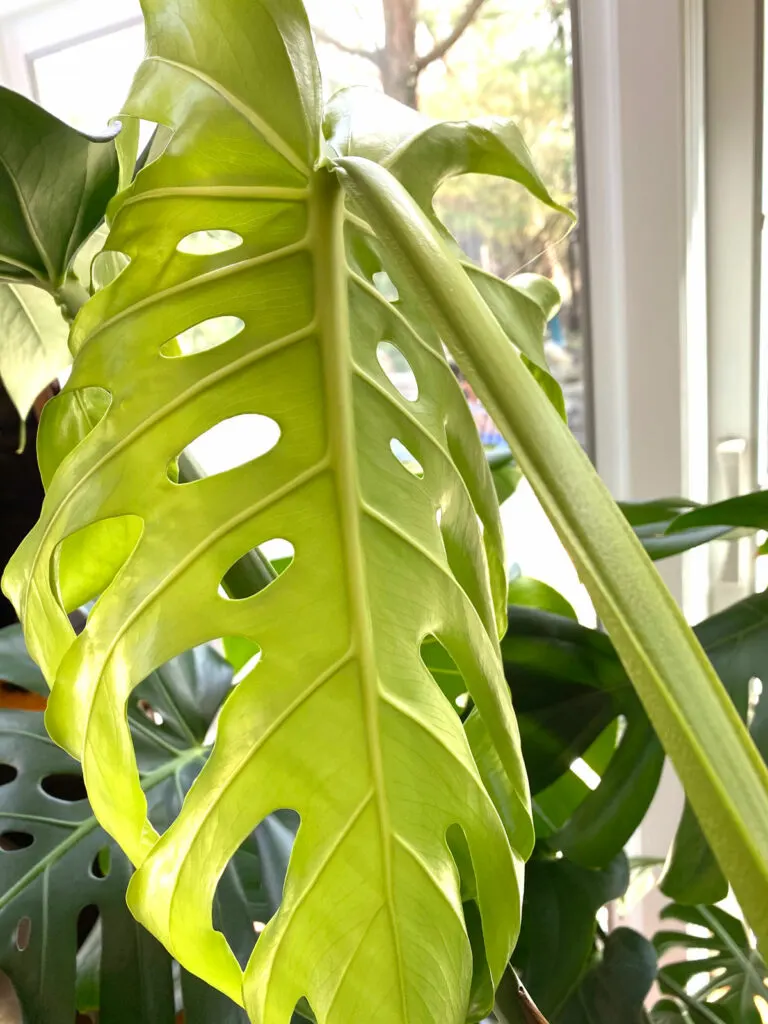
3. KEEPING YOUR CATS AND DOGS AWAY
In my personal experience, most dogs will tend to stay away from houseplants, but cats are another story.
Cats and plants are a notoriously bad combination, but there are some things that you can do in order to keep your plants out of your cat’s reach.
I did a survey of many of my readers and have documented the real world findings in a blog post on how to keep cats away from plants. Read the complete article for a lot more detail, but here are some general things to keep your plant collection out of your cat’s mouth!
CAT GRASS
If you are a cat owner, you should consider getting some cat grass. Many of my readers have reported that their cats generally leave their plants alone as long as they have enough cat grass.
ALUMINUM FOIL
The individual results vary from pet owner to pet owner, but many of my readers have also reported good results from using aluminum foil.
Simply lay aluminum foil sheets on the surface of your potting mix and it may just help deter your cats.
ISOLATE YOUR PLANTS
The most effective solution would be to keep your Monstera plants and other indoors plants out of reach of your cat by simply closing a doorway if you can.
Many different tactics work well for some pet owners, and not so much for others, but physically blocking your cat is a sure solution.
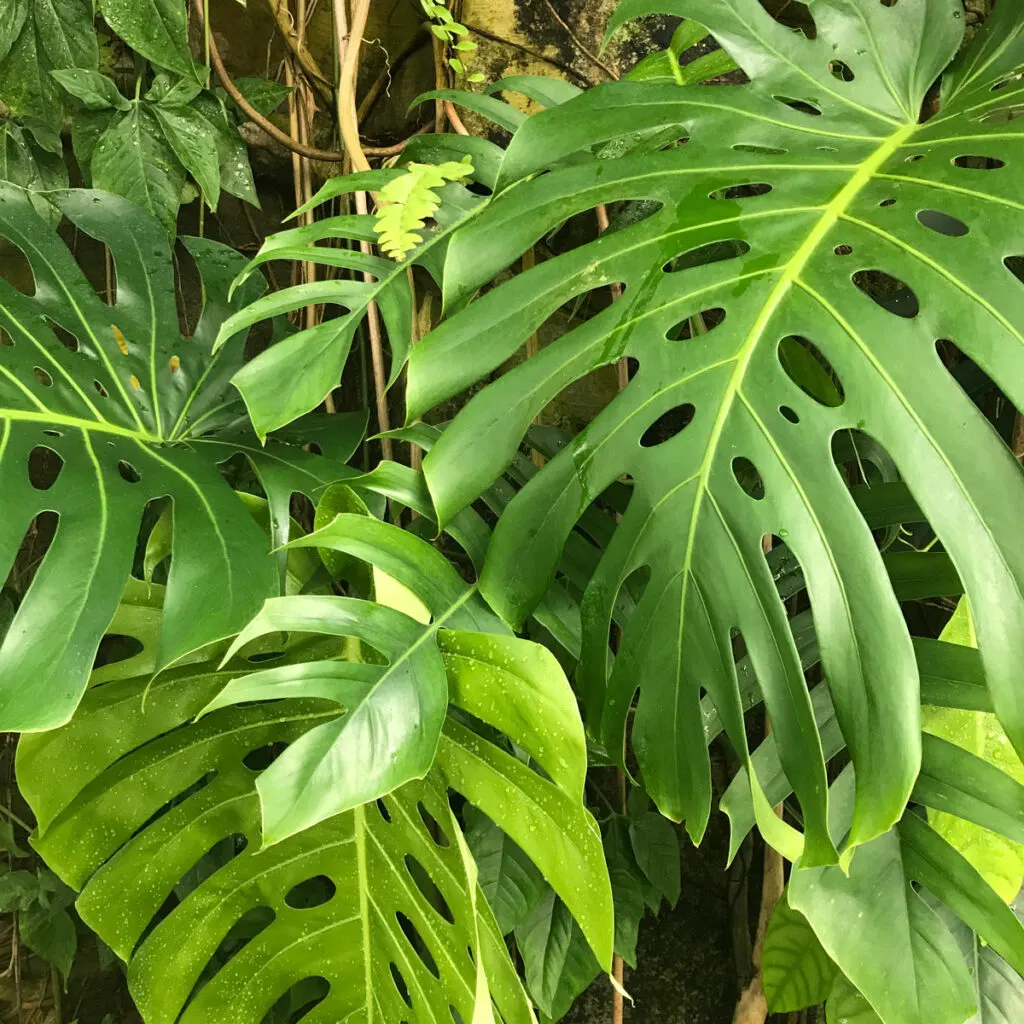
Lastly, you may find the following blog posts useful. There are plenty of non-toxic plants that you can grow indoors.
If you want a list of some of the best dog-safe and cat-safe plants, check out my blog post on 30 Nontoxic Houseplants for Cats and Dogs.
You may also be interested in reading about my list of 40 Toxic Houseplants for Cats and Dogs.
One of the most poisonous houseplants that you can grow indoors is the sago palm. I would recommend reading my article linked in the paragraph above as a precaution so that you know which of the common houseplants are poisonous.
A small bite or two of your Monstera probably won’t do much harm, but if you do notice that your Monstera leaves have been nibbled on, contact your veterinarian right away to be safe.

